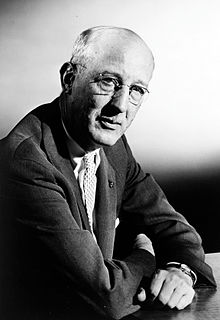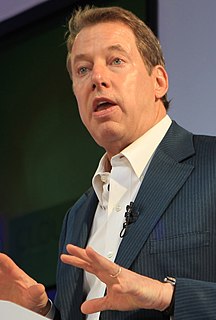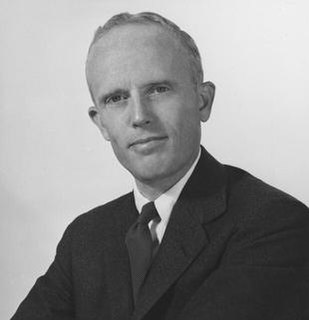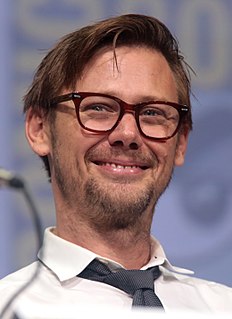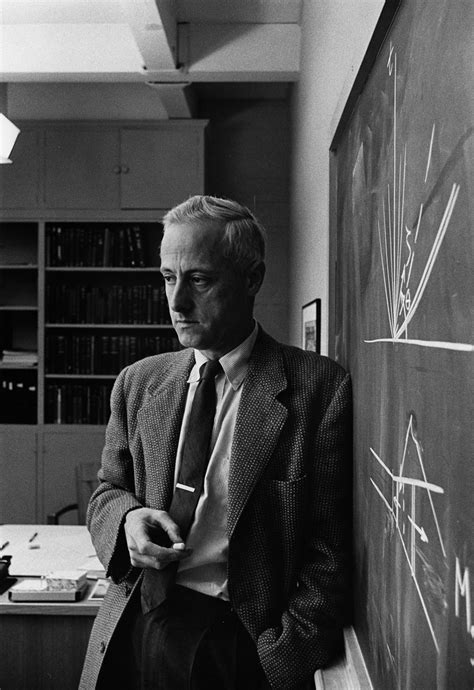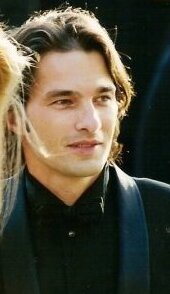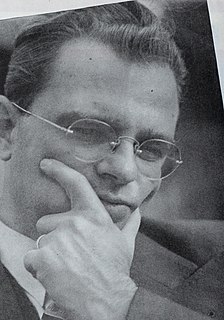Top 1200 Limited Knowledge Quotes & Sayings - Page 4
Explore popular Limited Knowledge quotes.
Last updated on April 22, 2025.
I think there's a shamanic temperament, which is a person who craves knowledge, knowledge in the Greek sense of gnosis. In other words, knowledge not of the sort where you subscribe to Scientific American, and it validates what you believe, but cosmologies constructed out of immediate experiences that are found to be always applicable.
My overall knowledge of football specifications, the overall process that happens on game day with the footballs is very limited. I would say that during the course of the game, I honestly never - it probably has happened on an incomplete pass or something - but I've never touched a game ball. It's not something I have any familiarity with on that.
Men must always have distinguished (e.g. in judicial matters) between hearsay and seeing with one's own eyes and have preferred what one has seen to what he has merely heard from others. But the use of this distinction was originally limited to particular or subordinate matters. As regards the most weighty matters the first things and the right way the only source of knowledge was hearsay.
The endless cycle of idea and action, Endless invention, endless experiment, Brings knowledge of motion, but not of stillness; Knowledge of speech, but not of silence; Knowledge of words, and ignorance of the Word. All our knowledge brings us nearer to our ignorance, All our ignorance brings us nearer to death, But nearness to death no nearer to God. Where is the Life we have lost in living? Where is the wisdom we have lost in knowledge? Where is the knowledge we have lost in information? The cycles of Heaven in twenty centuries Bring us farther from God and nearer to the Dust.
So the problem in the West is that, especially in places like the USA, a person will obtain this much knowledge and immediately think that they have a large amount of knowledge. And then start to act on the basis of what they think, they posses. Instead of having this much knowledge and realizing that in fact this is only this much knowledge and the amount of where you can go there is where you came is much bigger than where you've already gotten.
The receptivity of the masses is very limited, their intelligence is small, but their power of forgetting is enormous. In consequence of these facts, all effective propaganda must be limited to a very few points and must harp on these in slogans until the last member of the public understands what you want him to understand by your slogan.
We have no knowledge, that is, no general principles drawn from the contemplation of particular facts, but what has been built up by pleasure, and exists in us by pleasure alone. The Man of Science, the Chemist and Mathematician, whatever difficulties and disgusts they may have had to struggle with, know and feel this. However painful may be the objects with which the Anatomist's knowledge is connected, he feels that his knowledge is pleasure; and where he has no pleasure he has no knowledge.
By this we may understand, there be two sorts of knowledge, whereof the one is nothing else but sense, or knowledge original (as I have said at the beginning of the second chapter), and remembrance of the same; the other is called science or knowledge of the truth of propositions, and how things are called, and is derived from understanding.
Most people in AI, particularly the younger ones, now believe that if you want a system that has a lot of knowledge in, like an amount of knowledge that would take millions of bits to quantify, the only way to get a good system with all that knowledge in it is to make it learn it. You are not going to be able to put it in by hand.
It [knowledge] is clearly related to information, which we can now measure; and an economist especially is tempted to regard knowledge as a kind of capital structure, corresponding to information as an income flow. Knowledge, that is to say, is some kind of improbable structure or stock made up essentially of patterns - that is, improbable arrangements, and the more improbable the arrangements, we might suppose, the more knowledge there is.
I have sometimes questioned the advice and direction I received from my parents and grandparents, but I never questioned the fact that they loved me. I learned that they were in a better position to know more about right and wrong than I did from my limited understanding and from my limited experience.
My curiosity, alas, is not the kind that can be satisfied by objective knowledge. Plato said that opinion is worthless and that only knowledge counts, which is a neat formulation. ... But melancholy Danes from the northern mists understand that opinion is all there is. The great questions transcend fact, and discourse is a process of personality. Knowledge cannot respond to knowledge. And wisdom? Is it not opinion refined, opinion killed and resuscitated upward? Maybe Plato would have agreed with this.
As Americans, we're raised with this idea of, 'We're number one.' As an individual, you absorb and you consume until you skyrocket to the top with your money and your whatever. That's not my philosophy. My philosophy is quite the opposite in that there's limited space, we have limited resources, and so it's not about the individual.
We are specifically keeping the best and brightest out. It is the dumb and dumbest that we are letting in. Let me rephrase that: It is the ill-educated and the uneducated that we are letting in. The VCs, college graduates, PhDs, you name it, from all over the world, they are limited. The number of people of that caliber - severely limited and tightly controlled.
The knowledge of the individual citizen is of less value than the knowledge of science. The former is the opinion of individuals. It is merely subjective and is excluded from policies. The latter is objective - defined by science and promulgated by expert spokesmen. This objective knowledge is viewed as a commodity which can be refined... and fed into a process, now called decision-making. This new mythology of governance by the manipulation of knowledge-stock inevitably erodes reliance on government by people.
Meth is a national problem to the extent that it's not limited to one state; it's not limited to one region of the country. As to whether or not it requires a national solution, I'm not sure we're there yet, but that's something that's certainly being debated on the Hill; it's certainly something that we're discussing within the administration and that will continue.
Even those who have desired to work out a completely positive philosophy have been philosophers only to the extent that, at the same time, they have refused the right to install themselves in absolute knowledge. They taught not this knowledge, but its becoming in us, not the absolute but, at most, our absolute relation to it, as Kierkegaard said. What makes a philosopher is the movement which leads back without ceasing from knowledge to ignorance, from ignorance to knowledge, and a kind of rest in this movement.
First, my people must be taught the knowledge of self. Then and only then will they be able to under-stand others and that which surrounds them. Anyone who does not have a knowledge of self is considered a victim of either amnesia or unconsciousness and is not very competent. The lack of knowledge of self is a prevailing condition among my people here in America. Gaining the knowledge of self makes us unite into a great unity. Knowledge of self makes you take on the great virtue of learning.
The seeing of objects involves many sources of information beyond those meeting the eye when we look at an object. It generally involves knowledge of the object derived from previous experience, and this experience is not limited to vision but may include the other senses: touch, taste, smell, hearing, and perhaps also temperature or pain.
In the popular arena, one can tell ... that the average man ... imagines that an industrious acquisition of particulars will render him a man of knowledge. With what pathetic trust does he recite his facts! He has been told that knowledge is power, and knowledge consists of a great many small things.
In India there was a sense of time that does not tick with modern clocks, just as there is a knowledge that is not gained through science and empirical experiments. In the modern West knowledge is of objective, finite particulars in historical time. India recognizes that kind of useful information: it calls it "lower knowledge." Higher knowledge (paravidya) proceeds differently, or rather it doesn't proceed at all but enters history full-blown on the morning of a new creation.
My desire for knowledge is intermittent; but my desire to bathe my head in atmospheres unknown to my feet is perennial and constant. The highest that we can attain to is not Knowledge, but Sympathy with Intelligence. I do not know that this higher knowledge amounts to anything more definite than a novel and grand surprise on a sudden revelation of the insufficiency of all that we called Knowledge before,—a discovery that there are more things in heaven and earth than are dreamed of in our philosophy.
Glory is for none but the learned,
Guided are they - and proofs for seekers of guidance.
Every person is measured based on how much of it (knowledge) he mastered,
The ignorant are to the learned their enemies,
Succeed with knowledge and live energetically forever,
Men are all dead, only the possessors of knowledge are truly alive
I don’t have a problem with someone using their talents to become successful, I just don’t think the highest calling is success. Things like freedom and the expansion of knowledge are beyond success, beyond the personal. Personal success is not wrong, but it is limited in importance, and once you have enough of it it is a shame to keep striving for that, instead of for truth, beauty, or justice.
At the heart of capitalism is the unification of knowledge and power. As Friedrich Hayek, the leader of the Austrian school of economics, put it, "To assume all the knowledge to be given to a single mind... is to disregard everything that is important and significant in the real world." Because knowledge is dispersed, power must be as well.






















